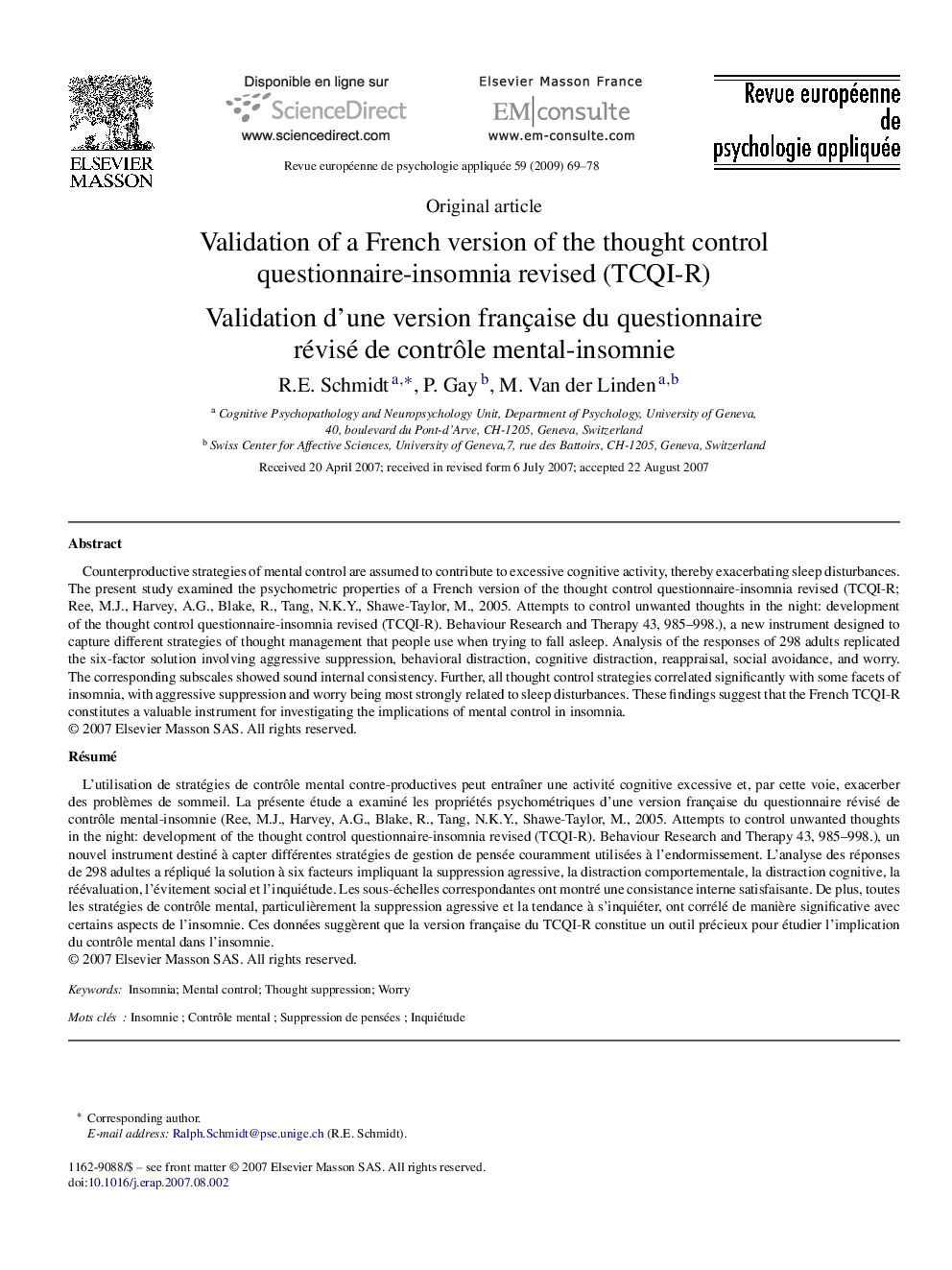| Article ID | Journal | Published Year | Pages | File Type |
|---|---|---|---|---|
| 895621 | Revue Européenne de Psychologie Appliquée/European Review of Applied Psychology | 2009 | 10 Pages |
Counterproductive strategies of mental control are assumed to contribute to excessive cognitive activity, thereby exacerbating sleep disturbances. The present study examined the psychometric properties of a French version of the thought control questionnaire-insomnia revised (TCQI-R; Ree, M.J., Harvey, A.G., Blake, R., Tang, N.K.Y., Shawe-Taylor, M., 2005. Attempts to control unwanted thoughts in the night: development of the thought control questionnaire-insomnia revised (TCQI-R). Behaviour Research and Therapy 43, 985–998.), a new instrument designed to capture different strategies of thought management that people use when trying to fall asleep. Analysis of the responses of 298 adults replicated the six-factor solution involving aggressive suppression, behavioral distraction, cognitive distraction, reappraisal, social avoidance, and worry. The corresponding subscales showed sound internal consistency. Further, all thought control strategies correlated significantly with some facets of insomnia, with aggressive suppression and worry being most strongly related to sleep disturbances. These findings suggest that the French TCQI-R constitutes a valuable instrument for investigating the implications of mental control in insomnia.
RésuméL’utilisation de stratégies de contrôle mental contre-productives peut entraîner une activité cognitive excessive et, par cette voie, exacerber des problèmes de sommeil. La présente étude a examiné les propriétés psychométriques d’une version française du questionnaire révisé de contrôle mental-insomnie (Ree, M.J., Harvey, A.G., Blake, R., Tang, N.K.Y., Shawe-Taylor, M., 2005. Attempts to control unwanted thoughts in the night: development of the thought control questionnaire-insomnia revised (TCQI-R). Behaviour Research and Therapy 43, 985–998.), un nouvel instrument destiné à capter différentes stratégies de gestion de pensée couramment utilisées à l’endormissement. L’analyse des réponses de 298 adultes a répliqué la solution à six facteurs impliquant la suppression agressive, la distraction comportementale, la distraction cognitive, la réévaluation, l’évitement social et l’inquiétude. Les sous-échelles correspondantes ont montré une consistance interne satisfaisante. De plus, toutes les stratégies de contrôle mental, particulièrement la suppression agressive et la tendance à s’inquiéter, ont corrélé de manière significative avec certains aspects de l’insomnie. Ces données suggèrent que la version française du TCQI-R constitue un outil précieux pour étudier l’implication du contrôle mental dans l’insomnie.
